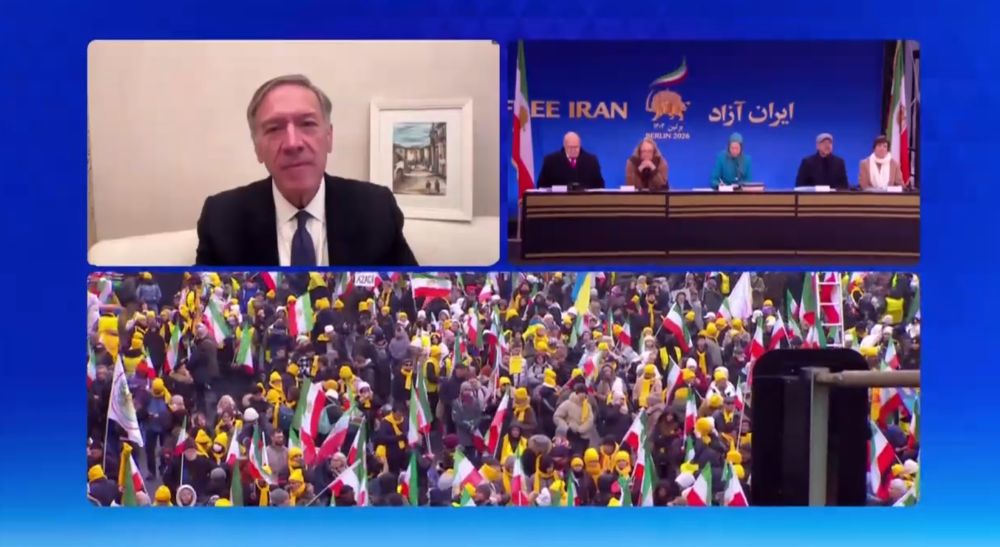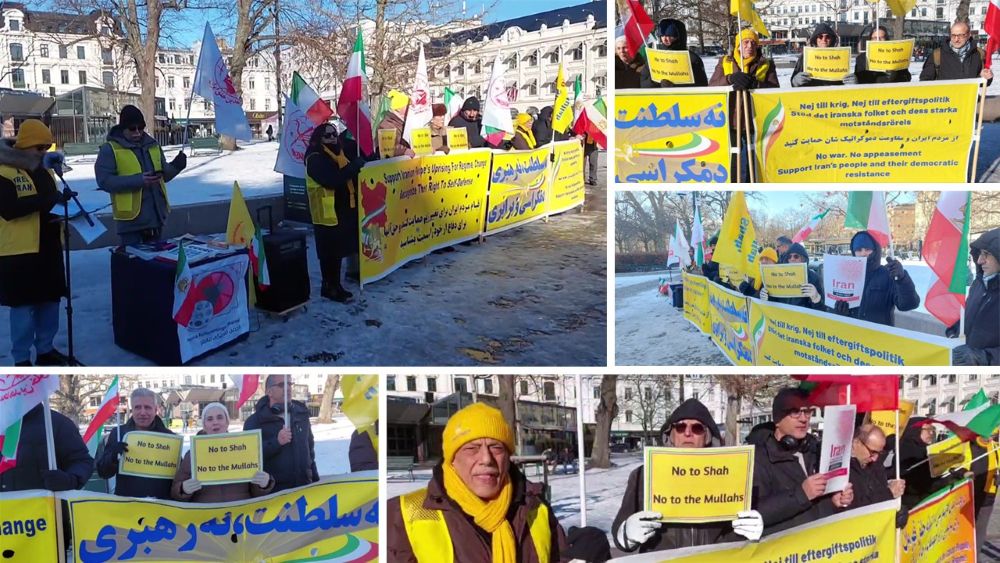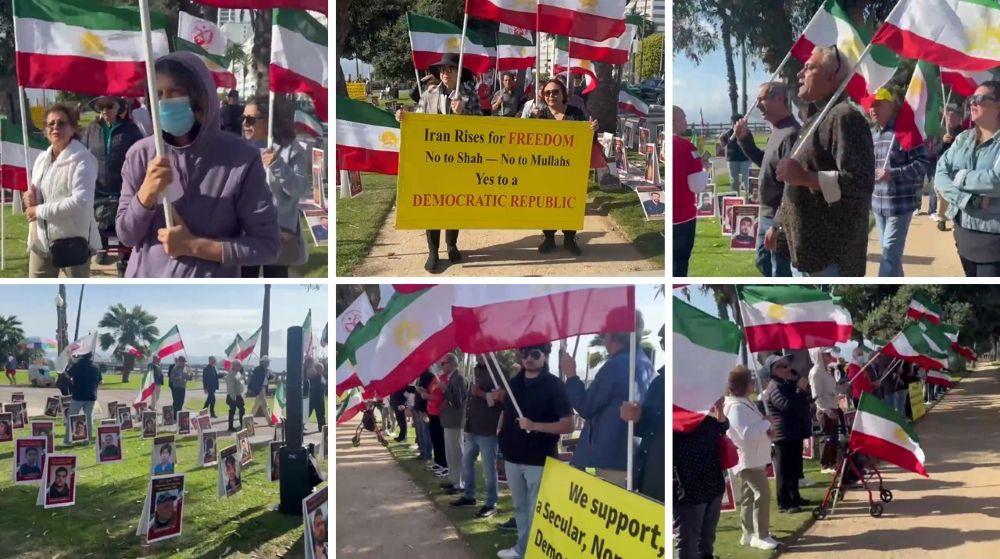Failed Belgium Terror Plot Unmasks Rouhani’s Moderation Sham
As stunning as it may seem, the simple fact that the Iranian regime has to resort to diplomatic means in order to facilitate an act of terrorism just before an important visit to Europe by its president Rouhani , shows the deadlock that the clerical regime has found itself to be in facing its political alternative, the NCRI.
A terror plot to bomb the large convention of the National Council of Resistance of Iran in Paris was foiled last week by at least three European countries, France, Germany, and Belgium. The joint counterterrorism operation resulted in 6 arrests, including an Iranian man with a diplomatic visa.
The explosives and a detonator were found in the trunk of a car that belonged to an Iranian couple with Belgian citizenships. According to experts, the explosives combined with a nail bomb, could have caused massive casualties during the event as the convention hall was packed with approximately 100,000 supporters of the NCRI including hundreds of European and American dignitaries and political figures.
The large number of prominent political personalities attending the rally included former US Speaker of the House Newt Gingrich, former New York Mayor Rudy Giuliani, former Canadian Prime Minister Stephen Harper and Foreign Minister John Baird, French-Colombian politician and ex-senator Ingrid Betancourt, US author and chairman of the Center for Equal Opportunity Linda Chavez, and Italy’s former Foreign Minister Giulio Terzi.
A State-Sponsor Of Terrorism
The terror plot is not a rare incident. In fact, the Iranian regime is the world’s top state-sponsor of terrorism. The regime’s ties to extremist and terrorist groups such as Al-Qaeda are well-known. A US federal court ruling found that “Iran furnished material and direct support for the 9/11 terrorists.” Eight of the hijackers passed through Iran before heading for the US.
Iran also provided funds, logistical support, and ammunition to Al-Qaeda leaders, sheltering several of them in exchange for attacks on US interests. The Iranian regime continued to support Al-Qaeda in Iraq and other countries aiming to advance its expansionist goals. This alliance is a clear evidence explaining why Al-Qaeda has never attacked Iranian interests.
The Iranian regime also made an effort to murder the Saudi ambassador to the US with a bomb at a restaurant in Washington in 2011.
Iranian regime’s terrorist attacks have left a lot of casualties. Examples of such fatal operations include the 1983 suicide bombing in Lebanon that killed 241 American servicemen (220 Marines, 18 sailors, and three soldiers); the Khobar Towers bombing of 1996; and the 2000 attack on the USS Cole, with direct support and involvement of Hezbollah and Al-Qaeda.
The AMIA bombing as the deadliest Argentina’s terrorist attack occurred in Buenos Aires on 18 July 1994, killing 85 people and injuring hundreds. Alberto Nisman, the prosecutor in AMIA Jewish center bombing, was found dead in Buenos Aires. He had accused Argentine President of trying to hide Iran’s role in 1994 attack and on the day his dead body was discovered, he was going to testify in a congressional hearing.
In 1997 EU withdrew its ambassadors from Iran and expelled Iranian diplomats from Europe following Mykonos restaurant assassinations of Iranian Kurdish dissidents in Berlin.
Last year, Kuwait expelled an Iranian ambassador and 14 other diplomats over links to a “spy and terror” cell and shut down Iran’s cultural and military missions as well.
Terror Plot
https://clarionproject.org/we-will-assassinate-enemies-republic-abroad-iran/
BERLIN COURT SAYS TOP IRAN LEADERS ORDERED KILLINGS
But the recent foiled operation was the first in its kind, in which an Iranian official is arrested for such a blatant act related to organizing a terrorist attack.
According to Belgian Public Prosecutor’s office the Iranian diplomat sited in the Iranian Embassy in Vienna, was arrested in Germany and stripped off his diplomatic immunity. He was identified as the “contact person” of the terrorists.
The foiled terror plot almost coincided with the Rouhani’s visit to European capitals, aimed at saving the 2015 nuclear accord. Literally, in the exact time that the regime was trying to show a moderate face and make Europe believe that the Iranian regime did not need a military nuclear program.
The regime’s officials attempted in vain to whitewash the aftermath’s scandals of the failed plot. The regime’s FM, Javad Zarif, rejected the terrorist accusation and called it as a “sinister false flag ploy,” carried out by the dissident group targeted to thwart attempts to save nuclear accord.
Following that, the Regime’s Ministry of Intelligence put blames on the Iranian opposition group, accusing them of using such an operation as a mean of propaganda to defame the regime.
The Belgian prosecutor’s spokesman, however, said Wednesday that the MEK (the main organized opposition group) was not a suspect in the plot.
Additionally, the most recent expelling of two Iranian diplomats by Amsterdam made Zarif’s claim even less credible.
In a statement issued Monday, NCRI responded to the arrests of the alleged bombers by calling on the EU to close Iranian embassies, expel Iranian diplomats and openly publish all details of the case.
The fact that the regime uses diplomatic means to facilitate terrorism before Rouhani’s imperative visit to Europe may look stunning at first, but it proves the stalemated state of the clerical regime in confronting with its political alternative, the NCRI, as the most serious existential threat.
So the international community should have a proper reaction to prevent the Iranian regime’s uses of its embassies and consulates in foreign countries as cells to promote terrorism and taking advantage of the diplomatic immunity to conduct assassination plans against expatriate Iranians.
At this stage, the most urgent action is shutting down the Iranian regimes diplomatic centers as the centers of terrorism and fundamentalism.



